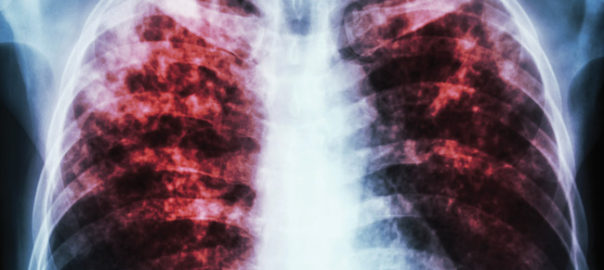The World’s First Cystic Fibrosis Stem Cell Study Is Underway

Cystic fibrosis, a genetic disease that causes progressive lung infections and limits a person’s ability to breathe, is a deadly disease that impacts more than 30,000 people in America and 70,000 people worldwide. Only 70 years ago, people born with CF rarely even survived through elementary school, but medical advancements now allow those with CF to survive into their 40s. Still, a significant amount of progress is still needed to find a cure for cystic fibrosis.
Cystic Fibrosis: A Complex Disease of the Lungs
People diagnosed with cystic fibrosis live with the constant risk of lung infections caused by thick, sticky mucus that accumulates in the lungs. As the mucus builds up, germs thrive and reproduce. The same phenomenon can occur in the pancreas and liver as well, leading to poor nutrient absorption and liver disease. This means that people with CF must complete rigorous treatments on a daily basis to stay safe. These treatments include clearing their airways of mucus, inhaling medicines to open the airways, and taking enzyme supplements to help the body more efficiently absorb critical nutrients.
The World’s First CF Stem Cell Study
The application of stem cells to treat and cure a myriad of diseases over the past years has inspired James Chmiel, MD, and others at the Cystic Fibrosis Therapeutics Development Center at UH Rainbow Babies & Children’s Hospital to launch a new research study using stem cells to treat cystic fibrosis. “This is an early phase trial, and the most important thing is to ensure safety,” Dr. Chmiel explained. “The study consists of a single infusion of stem cells. We will follow the study participants for a year to make sure it’s safe. Before applying any therapy on a broad basis, we want to make sure that it’s safe.”
A 39-year-old from Ohio, Bob Held, launched the investigation as the very first patient to receive the infusion of mesenchymal stem cells (hMSCs). Healthy volunteers supplied the bone marrow from which Held received the hMSC injection. Dr. Chmiel utilized hMSCs in particular because they possess so many properties that can treat inflammatory and degenerative diseases. Though this phase one study is simple meant to ensure safety, the researchers hope they will also see a reduction in the inflammation in Held’s lungs.
Dr. Chmiel explained, “Once in the patient’s body, the stem cell tracks to the area where there’s a significant amount of inflammation, and they take up residence there. The stem cells then respond to the environment, and hopefully reverse some of the abnormalities. We hope in future studies to demonstrate that the stem cells reduce the infection and inflammation and return the lungs to a more normal state.”
As the early phase trial commenced, Held explained to reporters that his participation was inspired by his late wife Michelle, who also suffered from and ultimately died from cystic fibrosis. “I am hoping the future generations of CF patients can get better treatments and that eventually a cure will be found for them,” he said. If all goes as planned, Held will honor his wife’s memory by being the first participant in what proves to be a groundbreaking research study toward a cure for cystic fibrosis.


